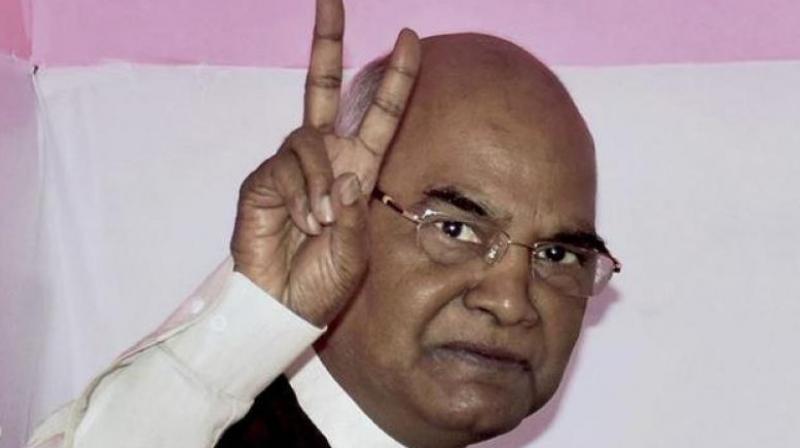2nd Dalit to be Prez, first with RSS links

There is little doubt that Ram Nath Kovind, Bihar Governor and BJP candidate for President, whose name was officially declared on Monday, will sail through and occupy Rashtrapati Bhavan on July 25. After President K.R. Narayanan, he will be the second from the Dalit community to become Rashtrapati. There should be no difficulties for Mr Kovind’s presidential bid even if the BJP’s NDA ally Shiv Sena acts contrary, though this is by no means certain. On the other hand, non-NDA parties like the TRS, YSR Congress and BJD have assured support to the candidature of one of the first dalit leaders to emerge from the ranks of the RSS. This is more than enough to assure Mr Kovind’s election. Of course, there is little doubt that these parties would have gone with the BJP’s choice even if it wasn’t for a dalit. This is due to political compulsions.
When he takes the oath as President, Mr Kovind will be the first representative of the RSS-BJP to do so as the protector of India’s Constitution, in the making of which the RSS — as the ideological stream of Hindu supremacists — had no role to play and is indeed thought to be not in tune with it. It’s to be hoped that the incoming President would be mindful of his responsibilities at Rashtrapati Bhavan although he is, in essence, an RSS apparatchik. He once headed the BJP’s Dalit front and was once the saffron party’s spokesman. And while he served two terms in the Rajya Sabha, he is not known much outside BJP circles. By choosing a Dalit leader from its stables, the BJP is doubtless trying to woo the Dalit community for the 2019 Lok Sabha elections through this symbolic gesture.
In many parts of India, Dalits are speaking out stridently against the BJP’s ideological posture, which has hurt them. This makes it all the more necessary for the BJP to take steps to check this trend. The Opposition parties are due to meet on June 22 to decide on whether to support Mr Kovind in deference to his dalit status, or to put up a symbolic fight against the nominee of the Hindutva stream in the same manner that the BJP did when not in power. The saffron party invariably opposed the presidential nominees of the Congress, no matter how eminent they may have been as individuals, to underline its political and ideological distancing from the Congress. The presidential election is a stage in the mobilisation of forces for the next Lok Sabha poll, and an opportunity for the BJP, the Congress and regional parties to begin positioning themselves and locating partners and allies.

